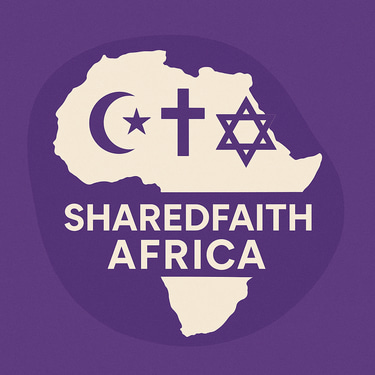South Africa: Christians, Muslims, and Jews built a joint safety net in a crisis
NATIONAL INTERFAITH PLATFORMS


Takeaway: In South Africa, Christian, Muslim, and Jewish leaders did more than “dialogue.” They coordinated—issuing joint guidance, adapting funerals and worship to public‑health needs, and using long‑standing interfaith forums to make safety a routine, shared habit.
When South Africa’s third COVID wave hit in mid‑2021, faith leaders did something unusually practical, and they did it together. Under the Religious Forum Against COVID‑19, the South African Council of Churches, the Muslim Judicial Council, and the Union of Orthodox Synagogues released a joint national statement on 1 July 2021. Shared messaging. Help with vaccination. Turning houses of worship into registration hubs. The statement even quoted MJC and SACC leaders side by side, while UOS’s signature made the Jewish role unmistakable. It was not grand theory. It was a plan people could use by the weekend.
It did not stop at a press release. On 18 July 2021, Mandela Day, the SACC hosted an interfaith broadcast under the RFA banner to pray for the country and nudge people toward practical steps like signing up for vaccines. One table. Christian, Muslim, and Jewish leaders on the same program. The World Council of Churches amplified the coalition’s goals that week, which likely helped get the message beyond usual church or mosque circles.
On the ground, each tradition translated public‑health rules into rituals that would actually work, then compared notes. The MJC issued detailed janāzah guidance on 18 April 2020 with caps on attendance, small trained teams, and clear safety steps. The Western Cape government published funeral protocols used across faiths at the time. Registers. PPE. Shortened services. Chevra kadisha teams in Jewish communities followed suit to keep burials both safe and dignified. A peer‑reviewed overview of South African Jewish responses records cross‑communal leadership meetings in June 2020 with Chief Rabbi Warren Goldstein and civil‑society experts. Those structures then plugged into wider interfaith spaces like the RFA and provincial forums.
None of this came out of thin air. The Western Cape Religious Leaders Forum has been around since 2005, gathering Christian, Muslim, Jewish, and other leaders under Archbishop Thabo Makgoba’s patronage. The Cape Town Interfaith Initiative lists the same core communities among its members and runs public programs, like Reconciliation Day walks through District Six, that make standing together feel normal. When COVID arrived, these older platforms gave the new coalition real legs.
Zoom out and a pattern appears. The Presidency formally consulted interfaith leadership during the first transition planning in May 2020. The SACC then convened the RFA and explicitly named MJC and UOS as partners. Provincial bodies and interfaith NGOs turned guidance into checklists and schedules. Different doctrines, same spreadsheet. It was not theological fusion. It was shared civic muscle that kept indifference from taking over during a slow, grinding emergency.
It is fair to name the limits. Compliance varied. Some congregations hesitated on vaccines or struggled to adapt funerals that are, by nature, intimate and communal. Registration drives ran into the digital divide. Even with those bumps, the approach appears to have made public health feel closer to home. A sermon after Friday prayers. A note in the synagogue bulletin. A pastor reminding congregants where to register. Small, repeated signals that added up.
Sources (selection)
SACC, “2021 COVID‑19 Statement by Interfaith Leaders – Third Wave” (SACC, MJC, UOS)
SACC notice on the 18 July 2021 interfaith broadcast under RFA
World Council of Churches reporting on the RFA coalition and aims
MJC janāzah protocols, 18 April 2020
Western Cape Government funeral protocol used across faiths, June 2020
Peer‑reviewed “South African Jewish Responses to COVID‑19” (open access) on cross‑communal coordination
Western Cape Religious Leaders Forum profile; Cape Town Interfaith Initiative programs
The Presidency’s May 2020 consultation with interfaith leaders


